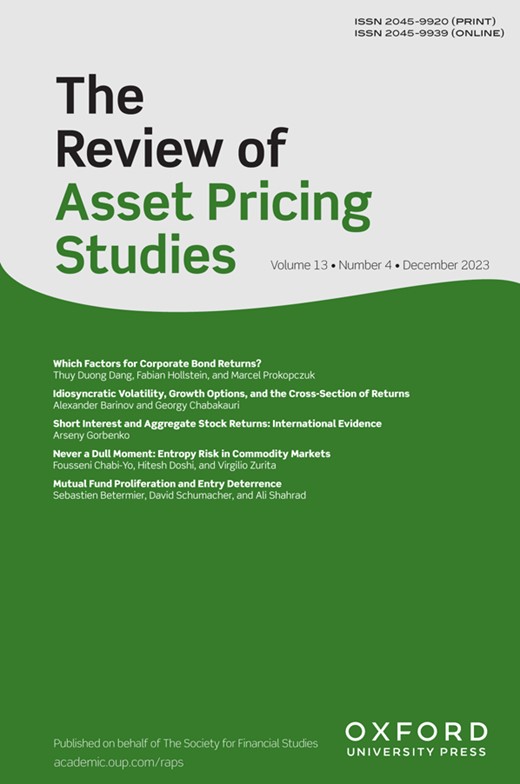预测股票发行人为何收益低?
IF 1.5
Q2 BUSINESS, FINANCE
引用次数: 0
摘要
预期股票发行人(psi)是指预期投资高、利润低、收益极低的公司。我们评估了对这一经验现象的不同解释。我们的研究结果显示,顶级psi公司现金短缺,收益类似彩票,波动性高,贝塔系数高,流动性低,做空成本高。在接下来的两年里,顶级psi公司每年的资产回报率为- 30%,报告令人失望的收益,并经历了强烈的负面预测修正。它们在低迷的市场表现不佳,因业绩原因退市的可能性是其他公司的6倍。总的来说,我们发现有大量证据支持错误定价,有一些证据支持非标准偏好,而实际上没有证据支持风险解释。本文章由计算机程序翻译,如有差异,请以英文原文为准。
Why Do Predicted Stock Issuers Earn Low Returns?
Predicted stock issuers (PSIs) are firms with expected high-investment and low-profit profiles that earn extremely low returns. We evaluate alternative explanations for this empirical phenomenon. Our results show top-PSI firms are cash-strapped, have lottery-like payoffs, high volatility, high beta, low liquidity, and high shorting costs. Over the next 2 years, top-PSI firms earn return on assets of − 30% per year, report disappointing earnings, and experience strongly negative forecast revisions. They perform poorly in down markets and are six times more likely to delist for performance-related reasons. Overall, we find substantial support for mispricing, some support for nonstandard preferences, and virtually no support for the risk explanation.
求助全文
通过发布文献求助,成功后即可免费获取论文全文。
去求助
来源期刊

Review of Asset Pricing Studies
BUSINESS, FINANCE-
CiteScore
19.80
自引率
0.80%
发文量
17
期刊介绍:
The Review of Asset Pricing Studies (RAPS) is a journal that aims to publish high-quality research in asset pricing. It evaluates papers based on their original contribution to the understanding of asset pricing. The topics covered in RAPS include theoretical and empirical models of asset prices and returns, empirical methodology, macro-finance, financial institutions and asset prices, information and liquidity in asset markets, behavioral investment studies, asset market structure and microstructure, risk analysis, hedge funds, mutual funds, alternative investments, and other related topics.
Manuscripts submitted to RAPS must be exclusive to the journal and should not have been previously published. Starting in 2020, RAPS will publish three issues per year, owing to an increasing number of high-quality submissions. The journal is indexed in EconLit, Emerging Sources Citation IndexTM, RePEc (Research Papers in Economics), and Scopus.
 求助内容:
求助内容: 应助结果提醒方式:
应助结果提醒方式:


